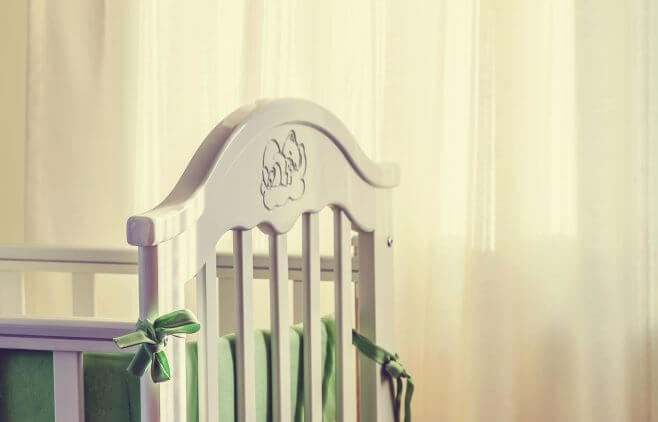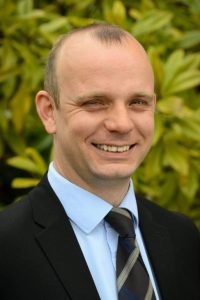
8 May 2017
A wrongful birth case is a term used by the courts when they consider the issue of wrongful contraception and wrongful birth, a claim that is pursued by the parents of the child. Wrongful birth actions aim to compensate parents who are negligently deprived by health professionals, of their right to a reproductive choice. The topic is both sensitive and complex from a personal, legal and medical perspective.
Newborn babies can be a challenging! For a parent in these cases they are, through no fault of their own, placed in a situation of great hardship and emotional distress. Over the years, there have been significant developments in pre-natal technology, imaging and checks to identify genetic abnormalities, even if such an abnormality is rare. Whilst some parents may decide to continue with the pregnancy, some parents may make the difficult decision to have a termination for personal reasons or because they think that the actual birth could significantly affect the quality of life for both the parents and their unborn child.
When such a claim arises, Solicitors will seek to determine what information should have been given to the parents prior to the birth and what difference this information would have made.
Wayne Walker, Solicitor within our Clinical Negligence Department, is currently investigating a case where a young lady gave birth to a severely disabled child. Prior to the pregnancy, our client had become pregnant where the foetus required an intra utero operation to stent a renal issue. Having undergone the stenting operation, the stent had malfunctioned causing issues to the foetus leading to our client being informed that the child, if born, would have no quality of life. With this information, our client made the difficult decision to terminate the pregnancy.
A number of years later, our client became pregnant again and on this occasion, as a result of the previous foetal issues, she underwent scans at 9 week, 13 week, 15 week, 17 week, 21 week and approximately 4 further scans thereafter. On each scan, the sonographer results reported a normal foetus so the pregnancy went to term. The child was born at 41 weeks gestation.
After 2 days at home, the child began to fit and these fits were numerous so our client took the child to the hospital. Upon further investigations using an MRI, it was noted that the child suffered from complete agenesis of the corpus callosum (centre of the brain), along with other brain abnormalities that should have been identified during the pregnancy. As a result, the child has no quality of life. She is wheelchair bound and suffers from Aicardi Syndrome (a rare neurologic disorder first described by the French neurologist, Dr. Jean Aicardi, in 1965).
Had appropriate investigations been undertaken, those treating our client should have recommended a termination as, a complete agenesis of the corpus callosum, as well as other brain abnormalities, would provide for an 80% chance that the child would be severely disabled.
Our client’s child cannot walk or talk. Her hearing is impaired and her sight is not effective. She can react to sights and sounds but too much stimulation results in approximately 20-30 seizures per day. She required around the clock care and is fed via a feeding tube (NG Tube). Sadly, her life expectancy is not expected to surpass 28 years.
Lizzie Mould
The diagnosis can be made in the antenatal period using clinical imaging, a prenatal ultrasound, an examination, an ophthalmology exam and a fetal MRI in order to recognise such a condition.
After the birth, the majority of children are able to communicate with gestures, sounds and expressions. Some will learn to sit independently but for a small number of children affected by the condition, the effects of the disability can be significant. The child may have seizures, impaired vision, hearing loss, scoliosis, and issues with growth and bone development.
Whilst there is some English case law on ‘wrongful births’; cases concerning Aicardi Syndrome, particularly in English law, is limited.
In 2014, a couple from New Zealand started investigating a legal claim on behalf of their daughter, Aria Ball who had actually been born in Australia. Whilst her parents love her unconditionally, it is claimed that had they known about Aria’s condition before her birth, they would have considered a termination. For her parents, the financial burden is increasingly difficult. Her parents are not Australian citizens and therefore, they have to fund the cost of the medical treatment, care and equipment that their daughter requires, without any financial support, other than that which is made through their income.
Her parents claim that the treating medical professionals failed to notice that Aria had a severe brain defect during the 19 week ultrasound, the 22 week ultrasound or the foetal MRI at 26 weeks. Defects can be detected as early as 12 weeks into the pregnancy. Even after Aria was born, a confirmed diagnosis was not made until she was 5 months old. The Couple are currently involved in a legal dispute with the hospital and in late 2016, it was confirmed that they were seeking $2.5 Million in damages. Only time will tell if this case will be successful.
In English law, wrongful birth cases are often difficult to predict. In the case of A v East Kent Hospitals University Foundation Trust (2015), it was determined that the mother would not have had a termination even if she had been told about her child’s disability during her pre-natal period. In the more recent case of Amanda McGuine v Lewisham & Greenwich NHS Trust (2017) it was held that the clinicians, who had undertaken the fifth and seventh scans (the consultant in charge of the Claimant’s care and a specialist in fetal medicine respectively) had been negligent and the parents were successful. It seems that this area of law is still under considerable development.
At Williamsons Solicitors, we have the skills, knowledge and staff to deal with sensitive issues such as this and out Clinical Negligence Team have the ability to handle the complexities of claims concerning wrongful birth.
For more information on the Aicardi Syndrome, please visit https://aicardisyndromefoundation.org/aicardi-syndrome/



